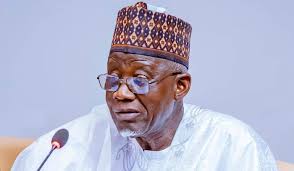The Federal Government on Thursday in Abuja validated the Nigeria Industrial Policy (NIP), describing it as a framework to drive inclusive growth, job creation and national competitiveness.
Sen. John Owan Enoh, Minister of State for Industry, said at the event that the policy marked a new covenant to reposition the economy on productivity and resilience.
He said that NIP was designed to operationalise President Bola Tinubu’s Renewed Hope Agenda by transforming industrial sector into the true engine of sustainable growth and national pride.
The minister explained that the policy had been subjected to wide consultations involving the Manufacturers Association of Nigeria (MAN), Organised Private Sector of Nigeria (OPSN), Nigeria Economic Summit Group (NESG), the academia, labour, development partners and MSMEs.
“What emerges today is not just government’s vision; it is Nigeria’s collective industrial charter,” Enoh said.
He emphasised that the success of the policy would depend on effective execution, noting that policies, however, brilliant, do not transform nations without measurable implementation.
Enoh said that the NIP would focus on power for production, credit for SMEs, incentives for local content, modern infrastructure and technology that enhance competitiveness.
According to him, the policy is also aligned with global and continental frameworks including the African Continental Free Trade Area (AfCFTA), the UNIDO Programme for Country Partnership and Africa’s Agenda 2063.
The minister called for shared stewardship among government, industry, academia, labour and civil society to ensure that the validation translates into industrial transformation.
He commended the National Institute for Policy and Strategic Studies (NIPSS), for stewarding the process and thanked all stakeholders for shaping the policy.
Enoh expressed optimism that the NIP would help Nigeria shift from being a consumer economy to a producing nation and from exporting raw materials to exporting finished products.
Stakeholders expressed confidence that the new NIP would revive the sector, strengthen manufacturing and enhance economic diversification, but stressed the need for effective implementation.
Prof. Ayo Omotayo, Director-General of the NIPSS, said that the framework would address long-standing challenges and enable the sector to contribute at least six per cent to Gross Domestic Product (GDP).
Omotayo explained that the policy identified stakeholders across the industrial ecosystem, clearly defined their roles and introduced monitoring mechanisms to ensure accountability and coherence in execution.
“The new NIP identifies key stakeholders and industrial trust centres, including development partners, with clearly defined roles and timelines.
“The framework also provides for monitoring and evaluation mechanisms to ensure accountability, so that any sector that falls short of its role can be promptly corrected.
“The reforms will bring coherence to Nigeria’s industrial ecosystem, enabling manufacturing and other subsectors to contribute more meaningfully to economic growth,” he said.
Representing the Nigerian Association of Chambers of Commerce, Industry, Mines and Agriculture (NACCIMA), Mr Abubakar Audu, commended the Ministry of Industry for driving an inclusive process.
Audu said that the policy reflected inputs from the private sector, particularly on the role of MSMEs, which it described as the backbone of the industrial base.
He said that the policy would strengthen value addition, expand markets through AfCFTA, support innovation, green growth and digital transformation.
Also the African Development Bank (AfDB), represented by Rosemond Offei-Awuku, said that industrialisation was central to the Bank’s 2024 to 2033 strategy and to Nigeria’s economic transformation.
She highlighted AfDB’s ongoing support through projects such as the Special Agro-Industrial Processing Zones (SAPZ), the Digital and Creative Enterprises Programme and the Ekiti Knowledge Zone, designed to boost manufacturing, agriculture and the digital economy.
She said: “ Strengthening value-chains, improving infrastructure and integrating MSMEs into AfCFTA will be vital to Nigeria’s industrial success.”
The event was attended by various stakeholders, government officials and partners among others who expressed their commitment to the policy.
The stakeholders agreed that the policy represented a new opportunity for industrial rebirth, but underscored the importance of policy consistency, infrastructure, financing and partnerships to translate the blueprint into results.
























